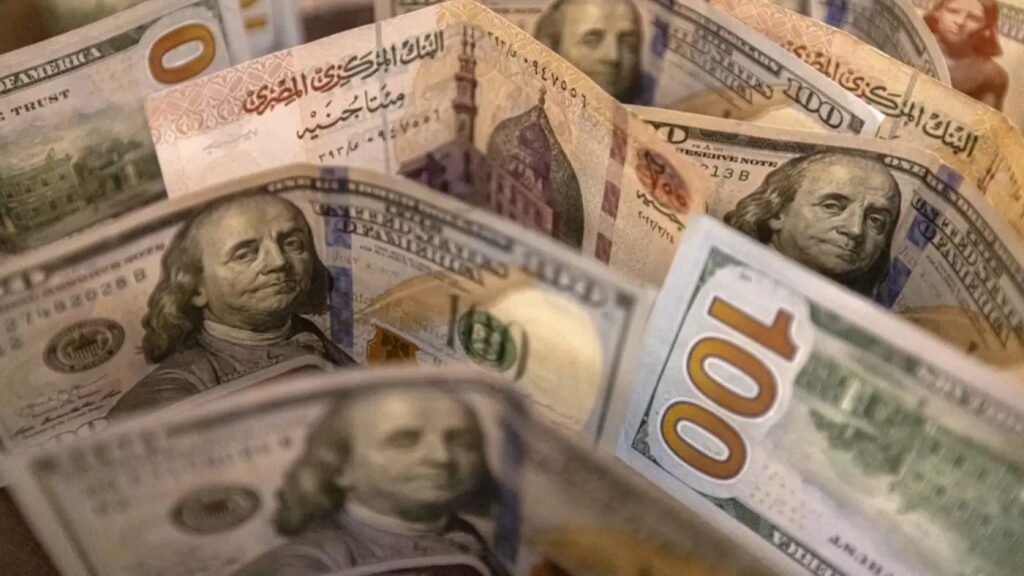Egypt’s Economic Shift: Record Rate Hike and Currency Liberation Amid Crisis
In a decisive move to stabilize its economy, the Central Bank of Egypt (CBE) announced a significant interest rate hike and a shift to a flexible exchange rate for the Egyptian pound on Wednesday. This dual action marks one of the most dramatic economic shifts in recent Egyptian history.
The CBE raised its key interest rate by an unprecedented six percentage points, reaching a record high of 27.25 percent. This triggered an immediate depreciation of the Egyptian pound, which plummeted by more than a third of its value against the US dollar. The official rate now stands close to the black market rate, with the pound trading at around 50.5 EGP to the dollar, down from 31 prior to the decision.
"The unification of the exchange rate is crucial as it helps eliminate foreign exchange arrears by reducing the gap between the official and black market exchange rates," the CBE’s monetary policy committee stated.
Background of Economic Turmoil
Egypt, the most populous country in the Arab world with over 106 million residents, has been grappling with severe economic challenges. The country witnessed its headline inflation reach 33.7 percent in December. The Oxford Economics think tank predicts this new exchange rate regime could drive inflation to a peak of 45 percent by the end of 2024.
Foreign debt has ballooned to $164 billion under President Abdel Fattah el-Sisi, with debt servicing consuming a significant portion of the state’s expenditures. Meanwhile, the Egyptian pound’s value has declined dramatically—over 600 percent since June 2014, when it traded at about seven to the dollar.
IMF Bailout and Foreign Investments
Amidst this turmoil, Egypt has been negotiating a bailout with the International Monetary Fund (IMF). Initially valued at $3 billion, the bailout could grow to $10 billion as Egypt struggles with foreign currency shortages and high debt levels. The IMF has consistently pushed for a move towards a flexible exchange rate, which has finally materialized with this recent decision.
Recently, Egypt also finalized a $35 billion deal with the United Arab Emirates to develop the Ras el-Hekma area on its northwestern coast. Economic analysts expect this investment to provide immediate financial relief and facilitate both the currency devaluation and the IMF agreement.
Domestic Challenges and Public Reaction
Despite these international efforts, the devaluation’s domestic implications are severe, especially concerning food and fuel prices. The public has been vocal about these issues, recalling President Sisi’s previous assurances against drastic devaluations that would spike living costs.
"Many food products are already priced according to black market rates," said Mohamed Gad, an economist at the Egyptian Center for Economic and Social Rights. "Importers’ dependence on the black market US dollar made them raise prices of consumer products."
Small businesses are feeling the brunt as well. Mohamed Abdallah, who runs a small market in Cairo, reported fluctuating prices with every new shipment. For instance, a packet of green tea that cost 91 EGP two weeks ago now sells for 145 EGP, with expectations of further increases.
Mostafa, an employee in a private company, noted his concern over the government’s lack of market control. "While we hope the IMF loan and the Ras el-Hekma deal will stabilize the markets, the immediate impact is unpredictable," he said.
Future Prospects
Egypt’s economic future remains uncertain. With extensive foreign debt payments due and inflation pressures mounting, the government faces significant challenges. However, if the strategic investments and IMF support are effectively utilized, Egypt may navigate through this economic crisis in the coming years.
For more information on the Central Bank of Egypt and its policies, visit their official website.
This article has been automatically published on our website to keep you informed of the latest economic developments in Egypt.
